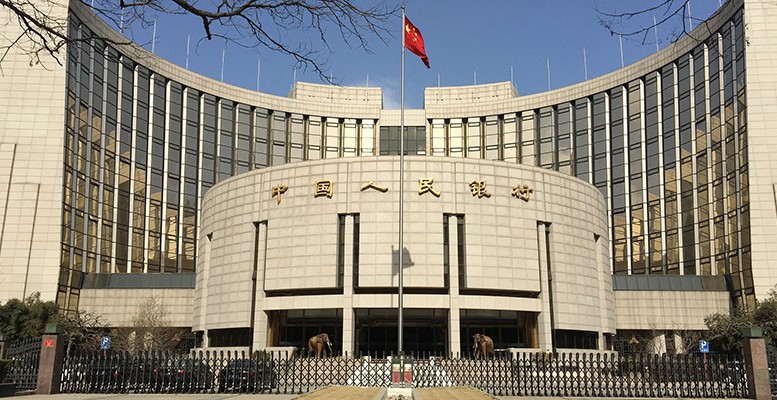Benjamin Cole via Historinhas | Westerners love to hazard guesses on China and that is what they are, guesses. Even a Mandarin speaker in Hong Kong (with whom I recently conversed), with family on the mainland and employed at a large private-equity fund, professes no special insights into opaque China. But China’s central bank, The People’s Bank of China, appears to have eschewed the advice of Western central bankers, and gunned the money presses this summer. Moreover, the PBoC tactic looks to be working.
Readers may recall the situation faced by China in the warm season. The buzz was “hot money” was fleeing the Sino state, and PBoC had to raise interest rates to keep trillions of dollars from vamoosing back to developed nations. Without that hot money, China corporations would be starved for capital, their debt payments would soar, many bank loans would sour, and the Sino domestic economy would shrink.
The PBoC Responds
- In 2015 the PBoC has cut interest rates five times, from 5.60% to 4.35%, the last cut in October. More cuts are forthcoming, suggest officials.
- The PBoC has unpegged the yuan, letting it sink within a daily band.
- The PBoC has cut bank reserve requirements three times in 2015.
- The PBoC has long engaged in QE, often by printing money and buying bonds from states, which used the money to build infrastructure. The PBoC may be upping its QE, but this is unclear.
Results
- After a summer swoon, China’s stock market has stabilized, even rallied a little. The Shanghai Stock Exchange Composite Index, as of Dec. 24, is up 22.4% YOY.
- On real estate, the Reuters headline of Dec. 18 was, “China November home prices rise for the 2nd straight month.”
- China retail sales rose 11.2% YOY in November, the highest monthly growth rate of the year.
Also notable, as reported by the AFB, a “Chinese boom in air travel defies slowing economic growth” and China Southern Airlines in December ordered $10 billion of jetliners from Boeing, and then another $2.3 billion from Airbus.
Two cruise ship lines, Norwegian and Carnival, have each recently announced they will build special liners based in China, at about a cost of about $500 million to $1 billion each in price.
Inflation?
The China consumer-price index rose 1.5% in November YOY, reported the National Bureau of Statistics. As observers have seen globally for the last several years, central bank stimulus and QE appear to work, but do not result in much inflation, and so it is in China. The PBoC is below its 3.5% IT, and so has lots of room to run.
Interestingly, The Economist has reported that the PBoC has been conducting QE operations for decades, through the nation’s period of rapid growth. The PBoC may have been curtailing QE in recent years, coincident or causative with slowing Sino growth (although slow in China is a 7% YOY GDP increase).
There are reasonable concerns about state agencies allocating capital, not free markets (although who allocates capital to infrastructure anyway?). Nevertheless, the macroeconomic results of QE appear beneficial.
Conclusion
Far East central bankers, at least in Tokyo and Beijing, are eschewing the tight-money totems of Western central bankers, and turning to growth policies instead. The growth strategies are working. Inflation remains muted.
Indeed, after 30 years of rapid growth and QE in China, they are paying the price…um, that is, 1.5% inflation.
The question is, “Can Western bankers learn from Eastern counterparts? Why not?”
And for Western economists, the question is, “If QE works in practice, but not in theory, should we banish QE, or change the theory?”
PS. China remains backwardly barbaric regarding political and civil rights. Evidently, both “China’s Carl Icahn” (Xu Xiang) and “China’s Buffett” (Guo Guangchang) are in detention or under restrictions by Sino myrmidons. Even novelists dare not write what they want, let alone political activists. Should China implode, it will be from insensate official political stupidity, not economic policies.





